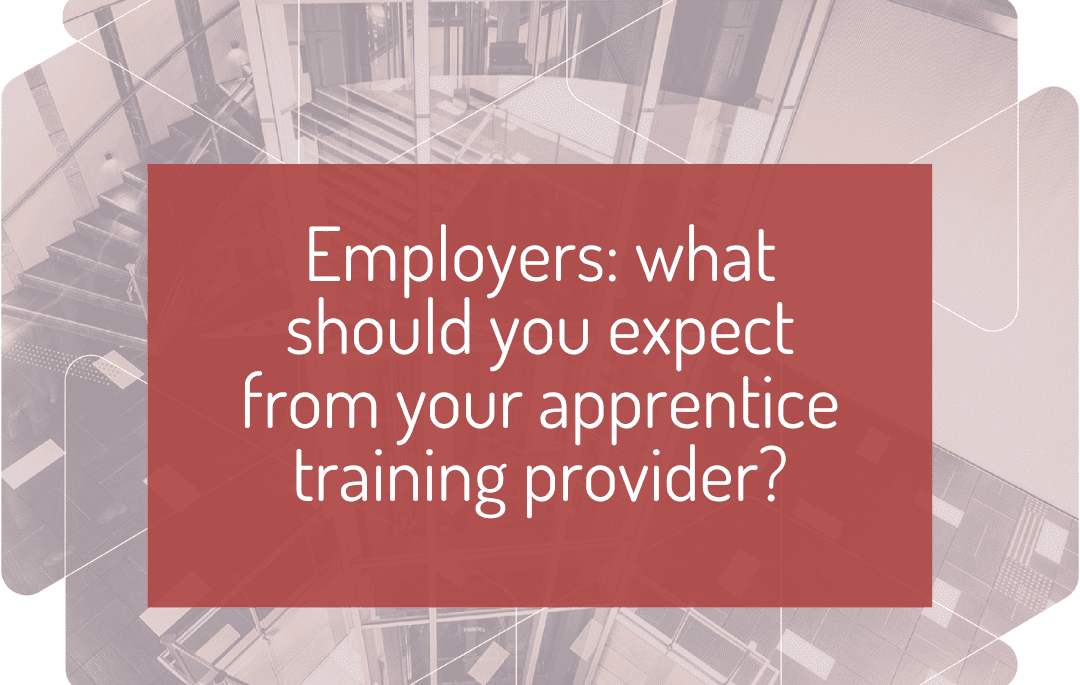Apprenticeships have come a long way to shed the stigma that they once had. More employers are increasingly realising the tangible benefits. Not only are apprenticeships bridging skills gaps, but they are helping to meet the demands of the UK workforce. With funding available, there has never been a better time to recruit an apprentice. Once you’ve made the decision, the next step is to find a training provider. So, what should you expect and how can you find the right match for your business?
What challenges are you are looking to overcome?
The first step is to identify what your aims are for the project or challenge at hand. For example, is your apprenticeship need a local or national one? Training providers can vary in size, but a number will provide national coverage, helping you to deliver a scalable recruitment and training programme a lot easier.
- Consider whether you’re interested in bolstering the diversity of your workforce? Some providers are better prepared than others to source and recruit for diversity.
- Do you want your apprentice(s) to spend time learning in a classroom environment and/ or via online tutorials? A blended learning model delivers better results against purely online-only learning, with face-to-face teaching seeing students collaborate more, interact socially with their peers and be more accountable for their work. A number of providers deliver in-house training.
- Are you looking for new entrants or to provide career advancements or changes to older or existing members of staff – apprenticeships are not just for school leavers.
Sector-specific experience
Each industry is unique, so partnering with an apprenticeship training provider who has demonstrable experience in delivering learning in your field should be a must.
A follow-on from this is to ask to see training materials and schemes of work from any potential partner. Identify the quality of sector-specific provisions on offer including learning resources for your apprentice(s). Some training providers go the extra mile, creating and compiling podcasts and articles for their apprentices to help with study, time management and upskilling.
- Does your potential partner have an internal team that it employs, or does it use external trainers/tutors to deliver content?
- A good mark of quality is a provider with an in-house team, with whom you can build a relationship and where accountability is taken for content delivery and apprentice learning
- Is the provider using competent people from the sector with current and credible experience?
Reputation and quality
Good training providers have good websites, where case studies can be found, testimonials from both employers and apprentices are available, as well as any industry or training awards or accreditations. If you want to read a case study but cannot find one on a website, contact the provider to request.
Check each provider’s OFSTED rating and check when it was given, as often they can be a few years old. Last of all, search for a provider that can fulfil the accolade of being a “top 50 training provider”. This mark-of-quality list is updated yearly and details the best UK training providers.
What should apprentice training providers be delivering?
- A provider will give clear information on the level of training provision you can expect to receive. This included clear learning outcomes and timeframes, as well as setting out your responsibilities throughout the apprenticeship.
- They should list their success rates and reporting tools. The success rate indicates the number of apprentices achieving their apprenticeship with each cohort. Reporting tools should be created in conjunction with your HR department’s needs and should track learner progression. This can be extended to include information on Levy spent by the employer per apprentice.
- Candidates. Providers will list job vacancies via their own website and through job agency boards. Be careful to avoid free recruitment job sites. A handful of good-quality candidates is better than a pool of low-quality candidates. Providers can screen candidates for you before handing them over to you for the interview and selection process if you are recruiting new entrants.
- Stay in touch regularly. Though different job titles exist, a mentor or account manager will be the conduit between you and your apprentice. Any questions relating to apprentice learning progress, training materials, further skills development or attitude can be addressed with your allocated consultant.
Pricing
Apprenticeships are given a tariff that the government or levy will cover up to a maximum value. Employers are within their rights and encouraged to negotiate this figure to get the best deal and make the most of the funding.
Employers should consider what they are getting for their money, for example:
Value for money. Is the training provider carrying out all the training for the apprentice, or will this be split between them and you, the employer? Funding can be reduced accordingly based upon how much the provider is delivering on their behalf.
How much is being delivered by third-party providers? Employers should always check if the delivery of training is being delivered by third-party providers, and check their reputation and the quality of their resources/training.




